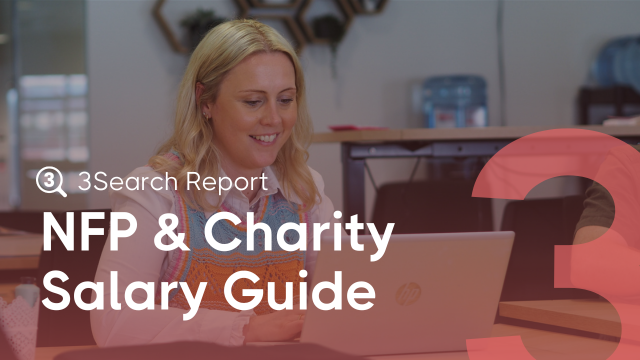Most jobs are never advertised publicly. In fact, it’s been suggested that as many as two-thirds of all new openings are filled via the so-called ‘concealed’ jobs market. How, though, can you make sure that you’re part of this marketplace and not missing out on new opportunities? Simple: networking.
Networking – interacting with others in your sector or industry to exchange information and develop contacts – needs to be done consistently at all stages of your career, but can be especially beneficial when you’re looking for a new position.
Through good networking you might, for example, meet the hiring manager for a firm and hear about an unadvertised position, re-engage an old contact who can put in a good word for you, gain some insight into the best ways to apply for a role, or hear about possible consulting opportunities.
The most successful networkers build genuine relationships with their contacts and give more than they receive. They go beyond thinking, ‘What’s in it for me?’ to ask ‘How can I help?’ which makes people want to help them out as and when they can.
Good networking, therefore, requires a bit of effort. Here are our six strategies for making the most of your connections and ultimately network your way to a new job.
#1 Start early and network consistently
By starting early, it reduces the chance of becoming desperate nearer the time of needing a contact. If you only appear on the scene when you need something, experienced networkers and businesspeople will be able to sense your desperation and expediency so will be less willing to network with you.
The best networkers engage with their contacts consistently throughout their career. By networking when you have no ulterior motives, you can start to construct genuine relationships and build a reputation among your contacts for being generous rather than self-serving.
#2 Get out there and attend events
OK, there is clearly a practical hurdle to successful networking: finding meetings and events where you can connect with relevant people in your sector. Once upon a time jumping this hurdle meant coughing up big bucks for conferences and paid-for events. Not anymore. In the big cities, but in London especially, there are literally hundreds of opportunities to network.
Check out MeetUp.com under your industry or sector and you’ll find a huge range of events ranging from panel events and workshops to informal coffee shop meetups (a search for ‘Marketing’ meetups in London this week returned over 50 results, for example).
You should also be regularly checking the websites of relevant professional bodies (e.g. the Chartered Institute of Marketing), large consultancies (e.g. Econsultancy), LinkedIn groups and sector-specific recruitment agencies for upcoming events.
#3 Create a personal elevator pitch
To make sure you get the most out of your encounters you should have an idea of what you are going to say. Ahead of attending any networking events take some time to understand what talents, strengths, skill sets and connections you possess.
Use this information to prepare a 30-second personal summary about yourself so that you can quickly and articulately sell yourself to new contacts and clearly explain how you can be of assistance to them.
#4 Make sure you listen more than you talk
There will be value in everyone you meet and it your responsibility to discover what the value in each person you talk to is. Ask questions and actually listen to their responses. The chances are that the vast majority of people you talk to, whatever their position or title, are going to have some valuable tips or information.
You can’t go wrong if you follow the six simple rules in Dale Carnegie’s timeless How to Win Friends and Influence People:
‘#1 Become genuinely interested in other people.
#2 Smile.
#3 Remember that a person’s name is, to that person, the sweetest and most important sound in any language.
#4 Be a good listener. Encourage others to talk about themselves.
#5 Talk in terms of the other person’s interest.
#6 Make the other person feel important – and do it sincerely.’
#5 Connect people within your network
Once you actually start to listen to people and understand what they can bring to the table, you’ll start realising how one person in your network may be able to help another. Make it a point to connect people you feel have something of genuine value to offer one another.
When you go out of your way to make potentially promising connections, you’re doing your part to make your network a success. You want potentially useful contacts to think ‘this person is really valuable’ so that they feel positive about you and eventually may be willing to help you with your job search and career.
#6 Follow up and follow through on your word
All of your networking efforts risk going to waste if you don’t follow up! If you told someone that you’d d be in touch, then do it and reiterate your intention to support them in any possible way you can. If you promised to introduce someone to a person you know, take the time to do it.
These days, of course, LinkedIn makes it so much easier to connect, and stay in touch, with contacts you meet at events. Make sure you look up the people you’ve engaged with and add them to your network via a short personal message.
Don’t just add people to your network and then forget about them, though. Take some time every month to go through your contacts and consider whether there is anyone you could meet up with, share useful content with or connect to another member of your network.
Successful networking takes a little effort, but the rewards from doing it well are worth your energies. Connect with 3Search via LinkedIn, Twitter and Facebook to keep up to date with all of our new jobs, blogs, and networking events.




